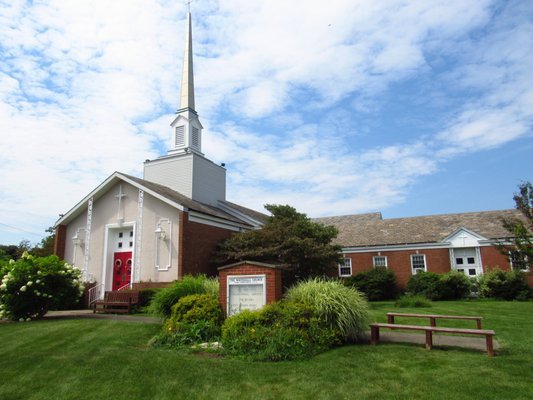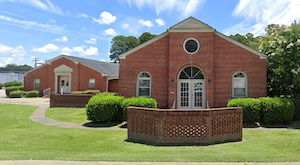What Are the Requirements for a Church Property Loan?
Constructing, repairing, or buying a Church building is a costly endeavor. That’s why many Church leaders resort to seeking property loans.
These loans allow churches without the necessary finances to buy, build, and expand their property. However, churches must go through vetting processes. This is because lenders need assurance that the church can repay the loan. Therefore, it’s crucial to understand church loan requirements.
Notably, the criteria for commercial and personal loans differ from what’s obtainable with churches. This difference lies within the fundamental distinction in the organization structures. Churches are non-profit entities that raise money from members. So, this article explains the vital requirements for getting a church loan.
Why Would a Church Need a Property Loan?
Churches can apply for loans for several reasons. For example, its membership may exceed its current location. In such cases, the church will need a larger structure. This necessity may also be urgent depending on the church’s expansion plan.
Other possible reasons for a church property loan include:
- Erecting new structures such as pastor’s quarters on the church’s existing land
- Refinancing church projects
- Remodeling of church buildings
- Repairing damage to the church’s building
- Building or expanding parking spaces
- Purchase and installation of upgraded facilities
- Acquiring fresh land or buildings
Types of Church Property Loans
Churches have at least two options when taking out loans. We explain them below.
Church Mortgages
Church mortgages typically involve the church getting loans while using its property as collateral. The church can use its land or buildings for loan security. Like all mortgages, the lender can take over the church’s property if they default on loan repayments.
In addition, your church can take two major types of mortgages. These mortgage types are:
- Long-term church mortgage
- Short-term church mortgage
Long-term mortgages mean that you’ll have years to repay the loan. Within this period, you’ll make several small monthly payments. However, in the long run, you’ll pay higher interest.
Short-term church loans are different. They typically mature in less than ten years. So, your church will have to pay higher monthly installments in a shorter period. Note that your church finances significantly determine which mortgage type you choose.
Unsecured Church Loans
An unsecured church loan is one gotten without any collateral or security. Usually, unsecured loans involve minor amounts, so they’re used for small renovations. An unsecured loan can also cater to equipment purchases or upgrades. Getting a small unsecured loan of $15,000 or less is often possible if the church has good credit.

What Are the Requirements for a Church Property Loan?
No lender gives out loans without qualifying requirements. These conditions aren’t eliminated or reduced merely because the lender is dealing with a church. Instead, the criteria may be stricter in some cases.
Church property loans are technically commercial loans. So, the lender will evaluate your church like a business, subjecting you to heavy scrutiny and due diligence.
Many lenders have their church loan requirements. First, however, we evaluate the general qualifications below.
Three Years of Financial Statements
First, a lender will examine your church’s financial statements. This process involves presenting your financials for three years preceding the date of the loan application. The relevant documents are your balance sheet and income statement, as lenders are generally looking for your cash flow.
This refers to the positive income of the church. They want to know the church’s revenue after expenses. So, a declining income record wouldn’t help your chances of getting the loan. Similarly, consistent losses in the church books may scare a potential lender.
Total Church Membership
Churches don’t operate to make profit. Instead, their capital comes from offerings and tithes. Consequently, a church’s member base is essential when applying for a loan.
The rationale is simple – the more members in a church, the less likely the church is to fail. This, in turn, increases the church’s chances of repaying and servicing the loan. However, it’s noteworthy that not everyone that attends a church’s service is a member.
Members are determined by the church, based on the church’s requirements. So, the more people that become members of the church, the stronger the church appears to a lender. It is a good idea to keep a membership roster.
Potential for Growth
Existing membership is great to show a lender, but it is also good to show that you have grown in the past and have the potential to grow even more. Church growth equals more income, which will further guarantee the loan repayment. In addition, exponential growth can make the church repay the loan earlier than required, saving the church interest expense.
The financial institution will also analyze your congregation’s growth in the years leading to the loan application when estimating future increase potential. Therefore, any projects aimed at attracting more members will significantly aid your chances.
Total Number of Giving Units
Lenders will also check your church’s giving units. Giving units refers to individuals and groups that guarantee a steady income.
For example, a giving unit could be a person who:
- Has a job
- Attends church services frequently
- Gives money on a regular basis
Therefore, keeping a record of offerings and tithes from individuals and families is helpful. The greater your giving units, the higher your chances of getting a church property loan.
Church History
Your congregation’s history tells stories a lender can’t learn from financial statements. Also, your church’s history aids in predicting the future. So, every serious financial institution will request such details.
For example, the lender may ask when your church was founded. There are other relevant facts, including:
- Background on church leadership
- General demographics of the church
- Current locations and the proposed property
- Different ministries in the church
- Leadership selection and change criteria
Campaign Data
Churches usually conduct financing campaigns. These campaigns raise capital to repay loans and fund new projects. In such cases, your loan application may have a better chance of approval with a good fundraising campaign. This means that the potential financier will require details of your financial plans.
The relevant elements include:
- Time Frame: How long will it take the church to raise the necessary funds?
- Campaign Estimations: How much you intend to raise for the project is a vital issue. Furthermore, a lender will want to know when you plan to reach your target. This will also help the lender judge the success of your campaign.
- Existing Funds: You must also show how much you’ve already raised from the fundraising campaign. The amount you’ve collected can determine how long it’ll take to get the total sum.
- History of Previous Campaigns: Have your other financing campaigns been successful? Did you get all the money you wanted? Did you apply all the funds to the campaign’s goals, or were they diverted? The answers to these questions are essential to church property loan lenders.
Church Constitution/Resolution
Finally, the lender must understand your church constitution before granting a loan. It’s necessary to ensure that the loan process complies with all the organization’s requirements. Usually, the application requires a resolution from the church’s board of trustees.
Resolutions are signed agreements authorizing the loan application. The board of trustees drafts and signs this resolution; without it, the loan applicants are probably acting alone. The financial institution may also require the minutes of the meeting where the resolution was passed.
Other Essential Church Loan Requirements
Church loan approvals don’t only consider financial indices. Instead, several other factors affect your church’s chances of getting financing. Some of them include:
Leadership
Everything falls on leadership. The current leadership of a church determines whether the church will repay the loan when due. Therefore, a church leadership known for financial mismanagement may not get loans.
In addition, leadership tussles put lenders off. No financial institution wants to lend to churches with uncertain leadership structures. So, suppose you’re applying for church financing. Then, it’ll be best to fix all issues that present a less-than-perfect leadership.
Commitment of Members
We already stated that financing institutions consider the church’s membership before giving out loans. However, these financiers mainly gauge the members’ commitment. They seek answers to questions such as:
- How long do members stay in your church?
- Are they long-term members or visitors?
- Do children and teens leave the church immediately after they attain maturity?
These questions are important because they determine a church’s long-term growth projections. Uncommitted members will lead to fluctuations in population and finances.
Finally, a potential church lender will also consider the church’s:
- Ministry impact
- Location
- Impact on the community
“If We Build It, They Will Come” Mindset May Make You Lose That Loan Approval
Some churches believe getting a new worship center will swell their ranks automatically. The assumption is that more recent, more significant, and more appealing buildings will attract more members. Indeed, this may be true in some cases. But it’s an unreliable metric for church growth.
Thus, an experienced church financier will avoid such projects. Instead, churches should judge their growth rate within the past three years. An honest analysis of your membership strength will determine whether you’ll continue growing on a new property.

Tips on Applying for Church Property Loans
These tips can improve your chances of acing the church property loan application.
Organize Your Church Finances
Finances are often difficult to organize in churches. This is because there’s usually no incentive to hire accountants. However, a church property loan provider may avoid you if your finances are disorganized.
So, it’ll help to invest in structure. For example, the accountants in your congregation can handle your church’s finances. They can ensure that you save your financial statements even when you don’t need them.
Ensure That Your Church Really Needs That Property Loan
Only a church, through its leaders, can know whether they genuinely need a property loan. Getting an ill-advised loan can significantly wreck a church’s finances. So, it’ll help to answer some pertinent questions:
- Do we need this new building or remodeling plan?
- Can we finance this project independently?
- Can we afford a repayment plan for a church property loan?
Suppose the answer leads to the conclusion that your church needs a property loan. The next issue should be the nature of the loan. Getting clarity before approaching a lender is vital. It’ll smooth the negotiation process and show the lender your commitment to the process.
Add the Loan Repayment to Your Ministry’s Long-Term Plans
You may default if you don’t adequately plan for the loan repayment. So, it’s always best to integrate the loan into the church’s plan until it’s paid. Understand that the loan is as vital as your ministry activities. This is because a default can negatively affect the ministry.
Get the Best Deal for Your Church
Getting a church property loan can be challenging. So, it’s best to prepare and plan appropriately. Firstly, always run your church like you’ll apply for a loan the next day. This approach ensures that you always have the relevant documents ready.
In addition, managing your church credit is essential. Getting a loan will be near impossible if your church isn’t creditworthy. Finally, it’s best to work with only the best church property loan providers.
A financier must understand your church’s vision and mission. This way, the loan and repayment plan will not adversely affect your church. Griffin Church Loans is the premier Church financing company. We can work with your church to design a loan that fits your needs and is affordable. Furthermore, this agreement will consider your church’s interests. Get in touch with us today.

